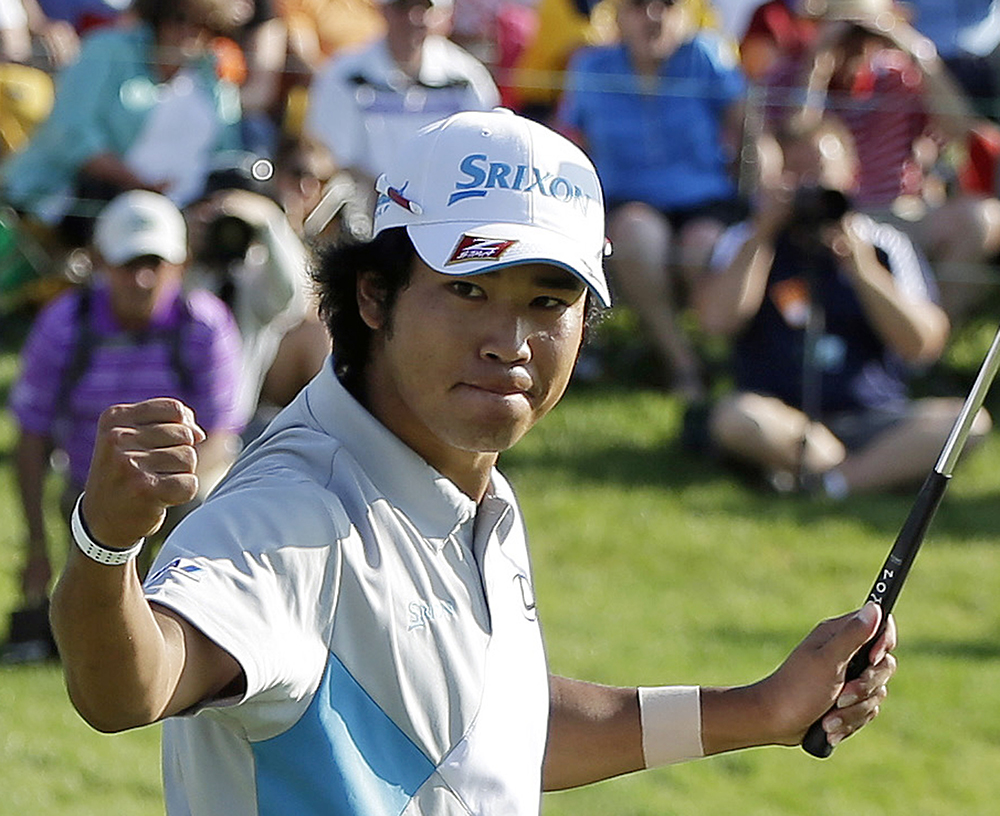The golf is simply better in the states.
The popularity of the sport in Asia, partially driven by success of professionals on the LPGA and PGA Tours, has resulted in an increase of high-school-aged players leaving their homeland and putting pegs in the ground in America.
"Our Asian enrollment has been pretty steady over the last few years," said Kyle Wolfe, a director of player relations at the International Junior Golf Academy, which is based in Florida. "We're starting to see an uptick with success on the pro tours with players from Japan, China, Thailand and India."
The Ringgold Telephone Junior Classic has a field of players from across the globe that represents the growth of the game. There are at least nine players in the Ringgold Telephone Junior Classic field with Asian roots.
"I feel like there's more opportunities out here," said Alex Hu, who moved from China to Florida to improve his golf game. "There are a lot more courses, and better coaching."
The success of ladies from Asia on the LPGA Tour has inspired more girls from that continent to pick up the game. The same is applicable for guys who watched Tianlang Guan play in the 2013 Masters Tournament after winning the Asian Amateur Championship.
"I used to play with him," said Hu, who shot a 1-over-par 72 on Tuesday at WindStone Golf Club. "He's doing really good now. Kids who practice in China or Asia, they know they can maybe, one day, be as good as him.
"I don't want to be him. I want to be Hu - myself."
Shuai Ming Wong, a native of Beijing, is tied for sixth after shooting a 3-under 68. He spends most of the year in China. But once his school year is over, he travels to America to compete against better golfers in his age group in hopes of earning a scholarship.
He said the competition isn't comparable back in China - but it's getting better because more courses are being developed and the game is grabbing roots in his native land
"It's still progressing because it's not that big of a sport," said Wong, who pointed to the success of Guan, who made the cut in 2013 at the Masters, as a bump of inspiration.
"A lot of kids started playing more golf since he became kind of an idol for some of the juniors in China, or maybe the world," Wong said. "Golf has become more popular in China - not just Bejing."
The victory by Hideki Matsuyama on the PGA Tour last weekend may have inspired Japanese golfer Tennoshin Ogawa, who shot a 3-under 68 at WindStone in the opening round.
"Matsuyama is very good. He's the best player in Japan," Tennoshin said. "I came here to play golf because, in Japan, I couldn't get any better. I was curious about how to get better and how other players play."
The Asian influence on golf is contagious. The game is growing overseas.
Duke coach Jamie Green, who watched a handful of players Tuesday, has noticed that the number of Asian players on his potential recruit list has increased in recent years.
"It seems there is more international flavor to these tournaments," said Green, who has China native Motin Yeung on his roster. "I thought I'd come out here and see kids that are rising."
And several of them are from overseas.
Contact David Uchiyama at duchiyama@timesfreepress.com or 423-757-6484. Follow him at twitter.com/UchiyamaCTFP.

